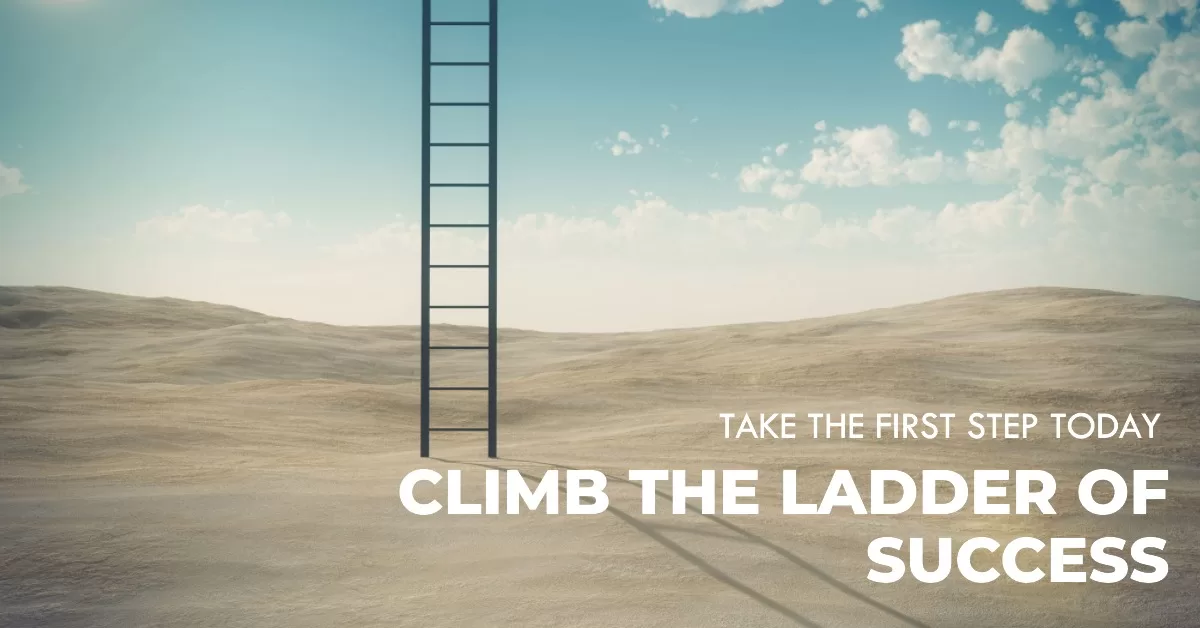Imagine yourself standing at the edge of a vast ocean, with the sun setting in the distance and the waves crashing against the shore. You feel a sense of wonder and excitement as you gaze out into the endless expanse before you. This is what personal development feels like – an adventure into uncharted waters, full of potential and opportunity.
Life coaching can help guide you on this journey toward self-discovery and growth. It provides a framework for setting goals and achieving them, while also giving you tools to overcome obstacles along the way. Whether your aim is to improve your communication skills, boost your confidence, or advance in your career, life coaching can help you get there faster and with greater ease. So why not take that first step today toward unlocking your true potential? The possibilities are endless!
Table of Contents
Key Takeaways
- Life coaching provides a framework for setting and achieving personal development goals.
- Boosting confidence and self-esteem can be achieved with life coaching techniques.
- Setting achievable goals and tracking progress is important for personal development.
- Identifying negative thought patterns and replacing them with positive affirmations can lead to personal growth.
Improve Communication Skills
You’ll be amazed at how much you can transform your relationships and interactions when you start working on improving your communication skills. Communication is the foundation of every relationship, whether it’s with family, friends, or colleagues. The way you communicate can either strengthen or weaken those bonds, so it’s essential to make sure that your message is clear and understood.
To improve your communication skills, the first step is to listen actively. This means giving your full attention to the person speaking without interrupting or judging them. By doing this, you show respect for their opinions and create an environment where they feel safe to express themselves freely.
The second step is to practice expressing yourself clearly and concisely. Avoid using jargon or technical terms that may confuse others who are not familiar with the subject matter. Instead, use simple language and provide examples if necessary.
Lastly, always remember that effective communication requires honesty and authenticity. Be true to yourself and express your thoughts and feelings in a respectful manner while also being open to feedback from others.
Enhance Emotional Intelligence
Improving your emotional intelligence is like unlocking a treasure trove of understanding and empathy. It involves being able to recognize and understand your own emotions, as well as those of others, in order to effectively manage them. By enhancing your emotional intelligence, you can better navigate personal relationships and professional interactions.
One way to enhance your emotional intelligence is by practicing self-awareness. This means taking the time to reflect on your own emotions and thought patterns. By becoming more aware of how you react in certain situations, you can learn to regulate your emotions and respond in a more constructive manner. Also, self-awareness allows for greater empathy toward others as it helps you recognize their perspective.
Another key aspect of improving emotional intelligence is developing strong communication skills. Effective communication requires both listening actively and expressing yourself clearly. By honing these skills, you can build stronger connections with others and avoid misunderstandings or conflicts that may arise due to miscommunication.
It’s important to practice mindfulness when seeking to enhance emotional intelligence. Mindfulness involves being present in the moment without judgment, criticism, or distraction. This can help reduce stress levels while also allowing for greater focus on interpersonal interactions.
By focusing on these areas – self-awareness, communication skills, and mindfulness – you can unlock a new level of understanding in both personal and professional relationships. Remember that enhancing emotional intelligence takes practice and patience but the rewards are worth it: greater understanding, empathy, and freedom from negative emotions that may be holding you back from achieving success in all areas of life!
Increase Productivity

When it comes to increasing productivity, there are a few key points to keep in mind. First, you’ll want to focus on developing effective time management strategies that work for you. This might mean breaking down your day into smaller chunks or identifying the times of day when you’re most productive. Second, prioritizing tasks is crucial if you want to make the most of your time and energy. By identifying what’s most important and tackling those tasks first, you’ll be able to make steady progress toward your goals. Finally, goal setting and achieving is essential for anyone who wants to boost their productivity levels. By setting clear objectives and taking actionable steps toward them, you can stay focused and motivated even when things get tough.
Time Management Strategies
By prioritizing your tasks and setting realistic deadlines, you can effectively manage your time and increase productivity. It’s easy to get overwhelmed when there’s a lot on your plate, but breaking down your tasks into smaller, more manageable steps can make all the difference.
Here are some time management strategies that can help you achieve personal development goals:
- Create a daily schedule: Plan out your day by making a to-do list with specific times for each task. This will help you stay focused and avoid wasting time on unimportant activities.
- Use the Pomodoro Technique: Work for 25 minutes straight, then take a five-minute break. Repeat this cycle three or four times before taking a longer break. This approach helps prevent burnout and increases focus.
- Avoid multitasking: Trying to do too many things at once can actually decrease productivity and quality of work. Instead, focus on one task at a time until it’s complete before moving on to the next one.
By implementing these strategies into your life coaching goals for personal development, you’ll be able to manage your time better and achieve greater success in all areas of life. Remember that effective time management is not about doing everything perfectly – it’s about doing what matters most efficiently so that you have more freedom to pursue what truly matters to you.
Prioritizing Tasks
It’s crucial to prioritize tasks if you want to achieve success and feel a sense of accomplishment. Prioritizing means deciding which tasks are the most important and need to be done first, and which can wait. It’s easy to get overwhelmed by everything on your to-do list, so it’s important to take a step back and evaluate what needs to be done right away versus what can wait until later.
When prioritizing, start by identifying urgent tasks that have a deadline or are time-sensitive. Once those are taken care of, move on to important but not necessarily urgent tasks that will help you reach your long-term goals. Be sure to also consider the value of each task – some may be more impactful than others in terms of achieving your overall objectives. By prioritizing your tasks effectively, you’ll feel less stressed and more productive, ultimately leading you closer to achieving greater personal development goals.
Goal Setting and Achieving
Achieving success is a piece of cake, as long as you don’t set any goals for yourself. Without clear goals to strive toward, it can be easy to get lost in the hustle and bustle of everyday life. That’s why setting and achieving goals is such an important part of personal development.
When setting your goals, it’s important to make them specific, measurable, attainable, relevant, and time-bound (SMART). This ensures that your goals are realistic and achievable within a set timeframe. It also makes it easier to track your progress along the way. Once you’ve set your SMART goals, break them down into smaller steps or milestones that will help you stay on track. Remember to celebrate each milestone you reach – this will motivate you to keep pushing forward toward your ultimate objective.
Find More Happiness
Looking for ways to boost your happiness? Try focusing on the small joys in life, like spending time with loved ones or indulging in a favorite hobby. We often get so caught up in our daily routines that we forget to take a step back and appreciate the simple things that make us happy. By intentionally seeking out moments of joy each day, you can increase your overall sense of wellbeing and satisfaction with life.
One way to cultivate more happiness is by practicing gratitude. Take a few minutes each day to reflect on what you are thankful for, whether it’s a supportive friend or a beautiful sunset. You can even create a gratitude journal where you write down three things you are grateful for each day. This exercise helps shift your focus away from negativity and toward the positive aspects of your life.
Another way to find more happiness is by setting goals that align with your values and passions.
Use the table below as an example:
| Value/Passion | Goal | Action Plan |
|---|---|---|
| Creativity | Write a novel | Set aside 30 minutes every day to write |
| Connection | Strengthen friendships | Plan one social activity per week |
| Adventure | Travel to a new country | Save money and research destinations |
By identifying what matters most to you and taking actionable steps toward those goals, you will feel more fulfilled and satisfied with your life.
Remember that happiness is not something that can be achieved overnight; it’s an ongoing journey that requires effort and self-reflection. Be patient with yourself and celebrate small victories along the way. With persistence and dedication, you can create a happier, more fulfilling life for yourself.
Advance in Your Career

If you’re looking to advance in your career, developing your leadership skills is a must. You need to learn how to inspire and guide others toward achieving common goals. Networking strategies and negotiation techniques can help you build relationships and secure better opportunities for yourself. By focusing on these key areas, you’ll be well on your way to achieving success in your chosen field.
Developing Leadership Skills
Developing leadership skills is crucial in personal development as it requires self-awareness, effective communication, and the ability to motivate and inspire others. Leaders with strong emotional intelligence can create a positive work environment that fosters creativity and productivity. They understand their own strengths and weaknesses, which helps them to delegate tasks effectively and build a team that complements each other’s abilities.
To develop your leadership skills, start by identifying your strengths and areas for improvement. Take on new challenges at work or in your community to push yourself out of your comfort zone. Seek feedback from colleagues or mentors to gain insight into how you are perceived as a leader. Practice active listening and communication skills to connect with others on a deeper level. Remember that being an effective leader isn’t about being perfect; it’s about continuously learning and growing to inspire those around you toward success.
Networking Strategies
Congratulations on taking the first step toward developing your leadership skills! Now that you have a solid foundation in leadership, it’s time to focus on networking strategies. Building strong connections with others can help you grow personally and professionally, while also opening up new opportunities for success.
One effective strategy is to attend industry events and conferences. These gatherings provide a great opportunity to meet like-minded individuals who share your interests and goals. Be sure to prepare ahead of time by researching the event and identifying key speakers or attendees you want to connect with. Once there, make an effort to engage in conversations, ask thoughtful questions, and exchange contact information. Remember, networking isn’t just about handing out business cards – it’s about building genuine relationships that can benefit both parties in the long run.
Negotiation Techniques
You want to get what you deserve, right? Well, let’s talk about negotiation techniques and how you can use them to your advantage in any situation. Negotiation is a valuable skill that can help you achieve your goals and improve your personal development. Whether it’s negotiating a salary increase, purchasing a new car, or simply deciding where to eat with friends, understanding the art of negotiation can give you the upper hand.
To become an effective negotiator, it’s essential to understand some basic principles of negotiation. One helpful technique is the “win-win” approach which involves finding solutions that benefit both parties involved. Another key principle is preparation – doing research ahead of time on the other party and their needs/goals will help you come up with creative solutions and gain leverage during negotiations. The table below outlines five negotiation techniques that can be applied in various situations:
| Technique | Description |
|---|---|
| Active Listening | Paying attention to the other party’s needs and concerns |
| Framing | Creating an argument or proposal in a way that changes how others view it |
| Compromise | Finding common ground by making concessions on both sides |
| Persuasion | Using logic and reasoning to convince the other party of your ideas/needs |
| Walk Away Power | Being willing to walk away from a deal if it doesn’t meet your minimum requirements |
By incorporating these techniques into your negotiations, you’ll not only increase your chances of success but also improve your communication skills and build stronger relationships with others. Remember, negotiation isn’t about winning at all costs – it’s about finding mutually beneficial outcomes that promote positive growth for everyone involved!
Boost Confidence and Self-Esteem
Feeling more confident and boosting your self-esteem can be achieved with some simple yet effective life coaching techniques.
Here are a few examples:
- Start by identifying negative thought patterns and replacing them with positive affirmations. This is often easier said than done, but it’s a crucial step in building confidence. For example, if you find yourself thinking “I’m not good enough”, try replacing that thought with something like “I am capable and deserving of success”. Over time, these positive affirmations will become second nature to you.
- Another technique for boosting confidence is to focus on your strengths rather than your weaknesses. We all have areas where we excel and areas where we struggle. Instead of dwelling on the latter, make a list of your strengths and remind yourself of them whenever you start to doubt yourself. By focusing on what you’re good at, you’ll naturally feel more confident in those areas.
- It’s also important to set achievable goals for yourself. When you accomplish something that was once challenging or impossible for you, it’s an incredible boost to your self-esteem. Make sure these goals are specific and measurable so that you can track your progress over time.
- Lastly, don’t be afraid to take risks! Stepping outside of your comfort zone can be scary but also incredibly rewarding. Whether it’s trying a new hobby or taking on a new project at work, pushing yourself beyond what feels safe will help build confidence in your abilities.
By implementing these techniques into your daily life and mindset, you will see significant growth in both confidence and self-esteem over time. Remember that everyone has moments of self-doubt but utilizing these tools will give you the ability to overcome those moments with ease. So go out there and chase after the freedom that comes with unshakable self-confidence!




